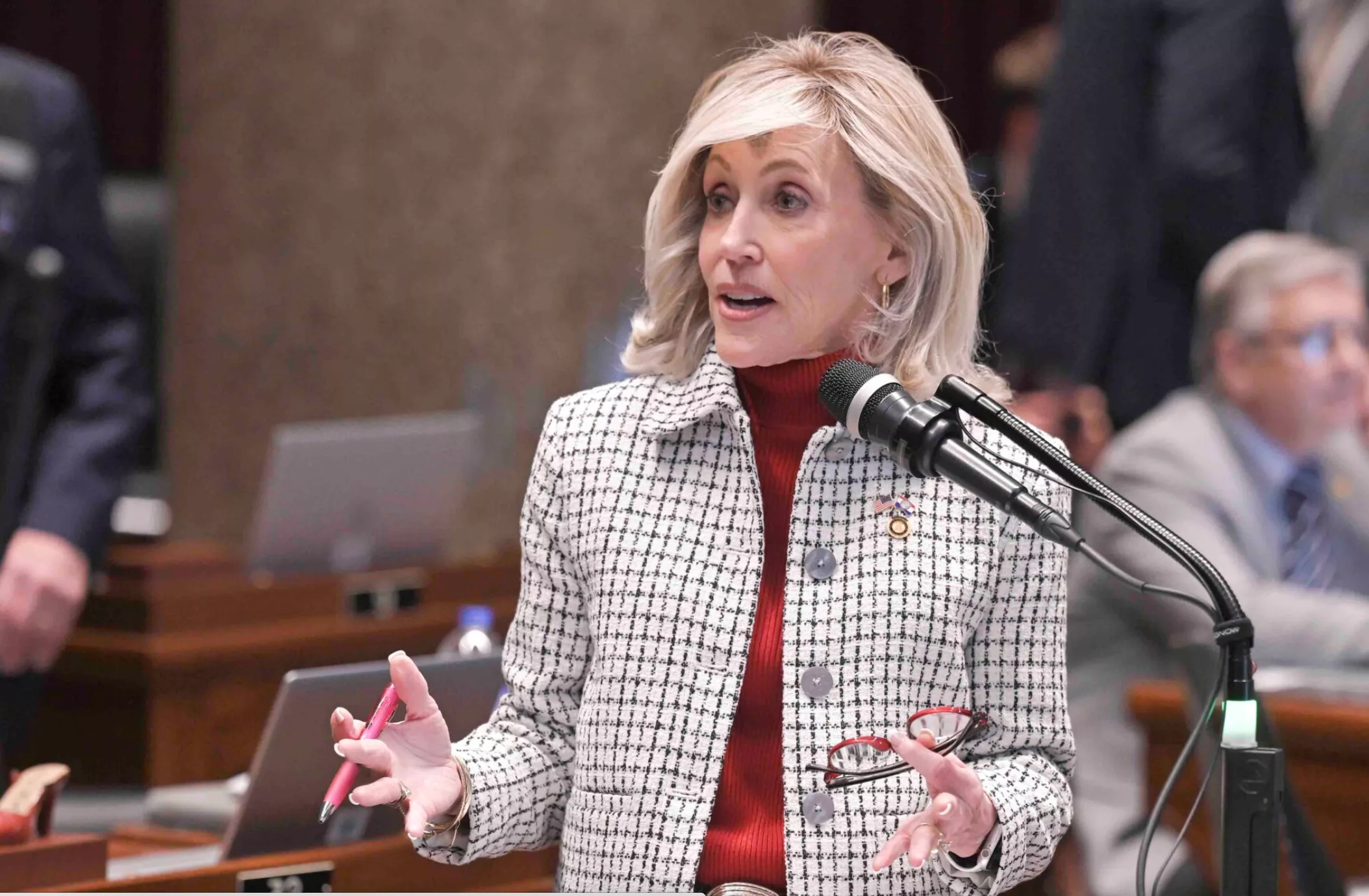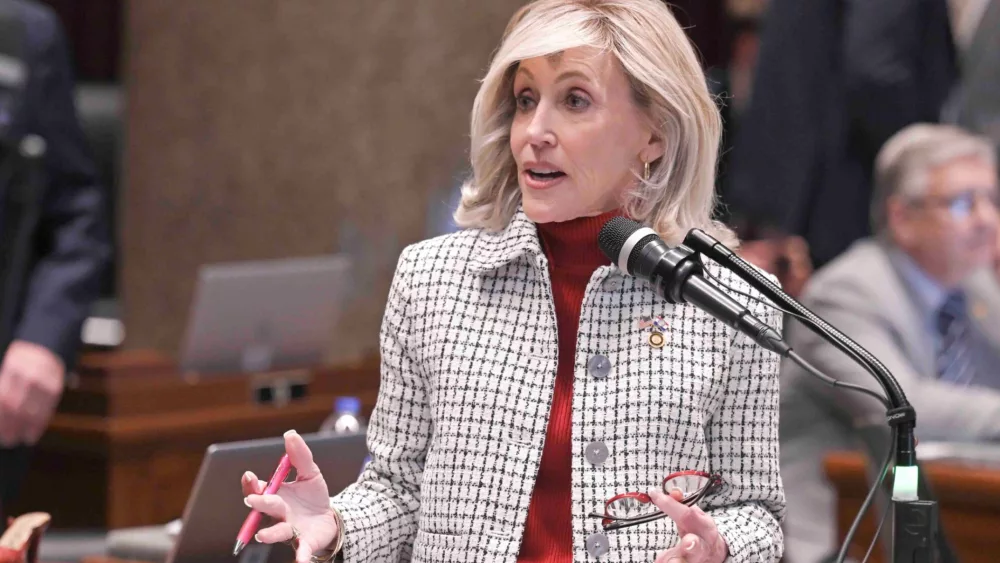
BY: CLARA BATES
Missouri Independent
A Republican-led push to overturn the paid sick leave law adopted by Missouri voters last year was debated and approved Wednesday by a state Senate committee.
The bill, sponsored by Republican state Rep. Sherri Gallick of Belton, was passed by the House earlier this month and would gut Proposition A, a voter-approved law requiring most employers starting May 1 to provide paid sick time off for hundreds of thousands of qualifying workers.
Gallick called the law, which also increased the state’s minimum wage, a “one-two punch for Missouri businesses” that will increase the cost of goods and services and have an adverse impact on small businesses in rural parts of the state.
She has said workers will “abuse” the leave.
Gallick’s bill would also modify the minimum wage law by removing the requirement that it be indexed to inflation.
The bill was passed out of committee Wednesday on a 5 to 2 vote party-line immediately following a contentious public hearing, with Democrats opposing.
The committee chair, state Sen. Curtis Trent of Springfield, said that although usually there is at least one week between the public hearing and committee vote, it’s “extremely clear…there is not really an opportunity for further deliberation by the committee” and that pushing the bill forward immediately would allow “robust debate and consideration” by the full Senate.
If approved by the Senate without changes, the bill would go to Gov. Mike Kehoe, who has voiced support for the proposal. There is no emergency clause, so it wouldn’t go into effect until Aug. 28 — months after the sick leave law goes into effect.
Richard Von Glahn, policy director for Missouri Jobs with Justice, the organization that helped lead the campaign for Proposition A, said it was modeled on paid sick leave policies in 18 other states. The initiative petition passed in rural, suburban and urban counties across the state and received 58% of the vote statewide.
“Opponents made their argument, we made our argument and the voters spoke,” Von Glahn said.
Gallick’s bill is “refutation of the public will,” he added. “It will make Missouri workers more likely to have to go to work while sick, jeopardizing their own health, the health of their coworkers and of Missouri workplaces.”
Many of the same industry groups who are challenging Proposition A in the state Supreme Court testified in support of the bill Wednesday.
Kara Corches, president and CEO of the Missouri Chamber of Commerce and Industry, called the law, especially paid sick leave, a “job killer.”
“We believe that this one size fits all approach to paid sick leave is unworkable,” Corches said.
Buddy Lahl, from the Missouri Restaurant Association, called the requirements on businesses “extremely cumbersome” and said the law is a “slippery slope” for what businesses will be required to provide.
“Fixing Proposition A is not even an option, fixing the sick pay. It just needs to be eliminated. It’s just too erroneous. And I only listed some of the bigger issues. Every line in there is a problem for a small business,” Lahl said.
When Lahl said the only fix is to eliminate the law, state Sen. Stephen Webber, a Columbia Democrat, responded: “That’s not happening, The only path you have is to maybe make some small changes.”
State Sen. Tracy McCreery, an Olivette Democrat, said restaurant workers without sick time who go to work because they need a paycheck for public health.
Proposition A passed with the support of numerous unions, workers’ advocacy groups, social justice and civil rights organizations, as well as over 500 business owners. It guarantees sick leave for hundreds of thousands of workers and gradually hikes the minimum wage to $15. The measure won by a margin of over 400,000 votes.
Under the law, beginning May 1, the law requires employers with business receipts greater than $500,000 a year to provide at least one hour of paid leave for every 30 hours worked. Employers with fewer than 15 workers must allow workers to earn at least 40 hours per year, with larger employers mandated to allow at least 56 hours. The law also gradually increases the minimum wage.
Under Gallick’s bill, the minimum wage would still increase to $15 per hour in 2026, as voters approved, but it would not be adjusted for inflation thereafter — a policy that has been in place since 2007. The sick leave provisions would be repealed entirely.
Because the measure changed state law and not the constitution, the legislature can modify or overturn it without returning for a new vote of the people.
The bill passed out of the House on a vote of 96 to 51 earlier this month.







